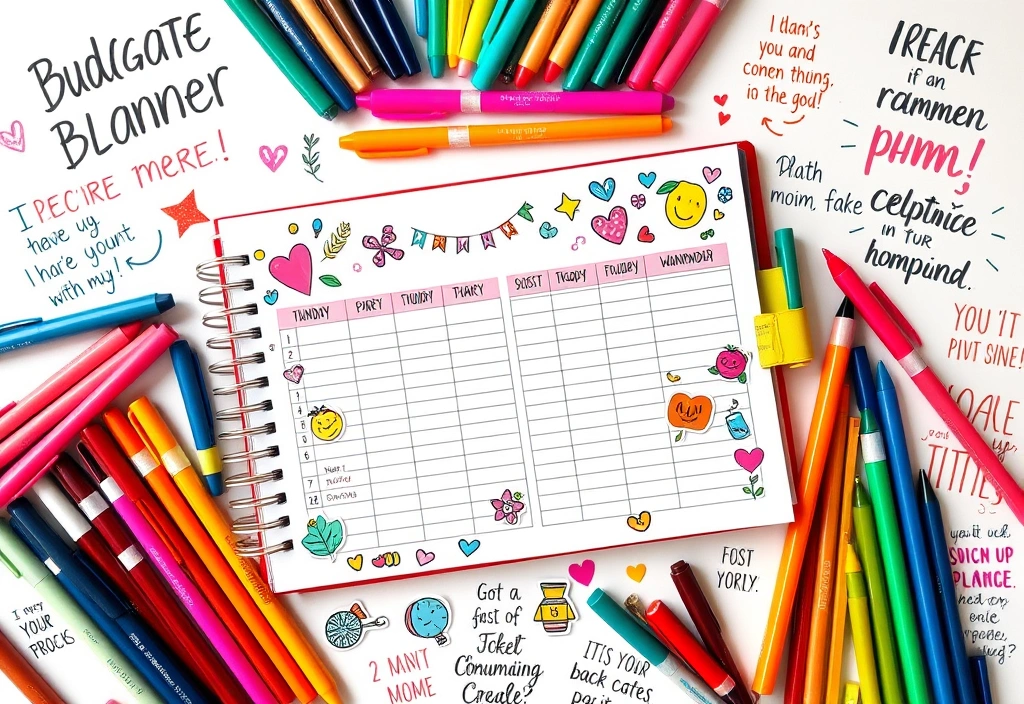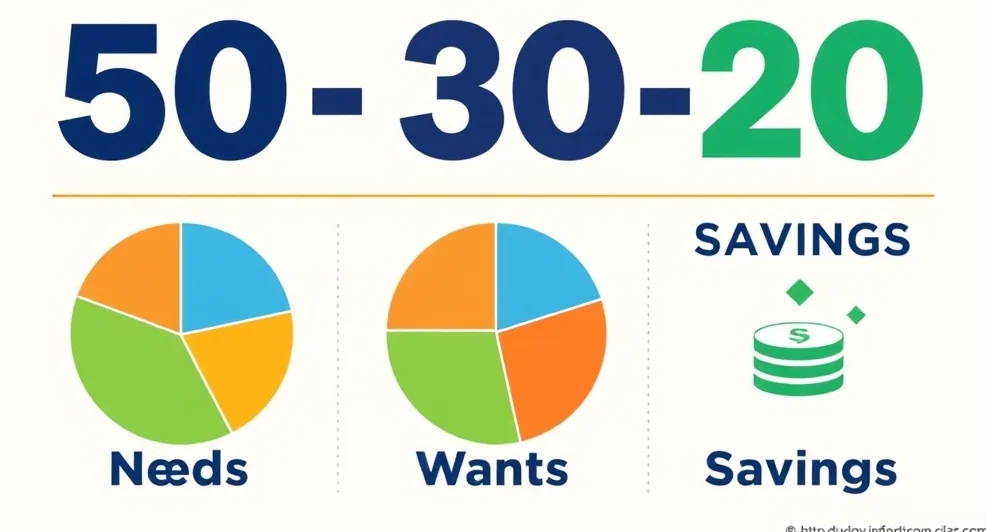The 50 30 20 Budget: A Simple Formula for Financial Success You Need to Know!
Are you feeling overwhelmed when it comes to managing your finances? You’re not alone! But what if there was a simple yet powerful budgeting formula that could put you in control of your money—without the stress?
Enter the 50/30/20 budget, a game-changing strategy designed to help you spend wisely, save efficiently, and still enjoy life. By breaking down your income into just three easy categories, this method ensures you cover essentials, indulge in some fun, and build a secure financial future—all without complicated spreadsheets or strict rules.
Ready to take charge of your finances and achieve long-term financial success? Let’s dive into this proven budgeting approach that can completely transform your financial well-being!
1. Understanding the 50 30 20 Breakdown
At the core of the 50 30 20 budget is its straightforward allocation: 50% for Needs, 30% for Wants, and 20% for Savings.
Needs encompass essentials like housing, utilities, and groceries, ensuring your basic living conditions are met.
Wants cover discretionary spending such as dining out, entertainment, and vacations, allowing you to enjoy life without guilt.
Lastly, the 20% for Savings promotes financial security and future investments, enabling you to build a safety net for unexpected expenses.
2. The Importance of Needs in Your Budget

Focusing on the 50% allocated to Needs is crucial for financial stability.
This section ensures that all essential expenses are covered, from rent or mortgage payments to necessary groceries and transportation costs.
By prioritizing these items, you eliminate the risk of falling behind on important bills, which can lead to stress and financial turmoil.
Understanding what qualifies as a need versus a want is vital for making informed financial decisions.
3. Embracing Your Wants
The 30% allocated for Wants is where the fun begins!
This portion allows for discretionary spending on things that enhance your lifestyle, such as dining out, hobbies, and travel.
Incorporating a healthy dose of enjoyment into your budget can boost your overall happiness and satisfaction with life.
Finding a balance between needs and wants ensures that you live fully while still adhering to your financial goals.
4. Saving for Your Future

The final 20% of your budget is dedicated to savings, which is crucial for long-term financial health.
This allocation can go towards an emergency fund, retirement accounts, or even investments.
Starting to save early can significantly impact your financial future, as compound interest allows your money to grow over time.
By prioritizing savings, you create a safety net that can cover unexpected expenses and provide peace of mind.
5. Tracking Your Expenses
Tracking expenses is essential to maximizing the effectiveness of the 50 30 20 budget.
By keeping a detailed record of your spending, you can identify areas where you may be overspending and adjust accordingly.
Utilizing budgeting apps or simple spreadsheets helps to visualize where your money is going, making it easier to stick to your plan.
Regularly reviewing your expenses allows for better financial decisions and improved money management.
6. Adjusting Your Budget as Needed

Flexibility is key when using the 50 30 20 budget.
Life circumstances change, and so should your budget!
Adjusting your allocations based on income fluctuations or lifestyle changes ensures that you remain on track.
Regularly revisiting your budget allows you to adapt without compromising your financial goals.
7. Setting Financial Goals
Having clear financial goals can make the 50 30 20 budget even more effective.
Whether it’s saving for a vacation, buying a home, or building an emergency fund, setting specific goals gives your budget purpose.
Breaking down large goals into smaller, manageable steps helps maintain motivation and provides a sense of accomplishment along the way.
This targeted approach to budgeting not only enhances financial literacy but also empowers you to take control of your finances.
8. The Role of Financial Education

Financial education plays a pivotal role in successfully implementing the 50 30 20 budget.
Understanding the basics of money management can empower individuals to make informed decisions and develop effective budgeting strategies.
Various resources, including books, workshops, and online courses, can enhance your financial literacy and provide valuable insights.
Investing time in learning about finances can yield long-term benefits and foster a positive relationship with money.
9. Overcoming Common Budgeting Challenges

Budgeting can come with its own set of challenges, but understanding these hurdles can lead to effective solutions.
Common issues like impulse buying, unexpected expenses, and lifestyle inflation can disrupt your financial plans.
Identifying potential pitfalls and creating contingency plans can help mitigate these challenges.
By staying vigilant and adaptable, you can maintain adherence to your 50 30 20 budget and work towards your financial goals.
10. The Power of Accountability
Having an accountability partner can significantly enhance your budgeting efforts.
Whether it’s a friend, family member, or financial advisor, sharing your financial goals can provide support and motivation.
Regular check-ins and discussions about your progress encourage commitment to your budget.
This partnership can also offer new perspectives and strategies for managing your finances more effectively.
11. Making Budgeting Fun

Budgeting doesn’t have to be a mundane task; it can be enjoyable!
Incorporating fun elements, like gamifying your savings goals or hosting budgeting parties with friends, can make the process more engaging.
Utilizing colorful planners, stickers, and creative charts can also add a playful touch to your budget.
By changing your perspective on budgeting, you can foster a positive relationship with your finances.
12. Evaluating Your Financial Health
Regularly evaluating your financial health is essential for staying on track with the 50 30 20 budget.
This involves reviewing your income, expenses, savings, and debts to gain a clear picture of your financial situation.
Identifying trends and areas for improvement can help you make informed adjustments to your budget.
By staying proactive and evaluating your finances, you can ensure you’re on the path to financial success.
13. The Impact of Lifestyle Choices

Your lifestyle choices significantly impact your 50 30 20 budget.
Deciding on your living arrangements, transportation, and even your social activities can influence your overall financial health.
Opting for more sustainable and cost-effective choices can free up funds for savings and investments.
By making conscious lifestyle decisions, you can enhance your financial stability and work towards your goals more effectively.
14. Celebrating Your Milestones
Celebrating your financial milestones can reinforce positive behavior and motivate you to continue with your budgeting journey.
Whether it’s reaching a savings goal, paying off debt, or successfully sticking to your budget for a month, recognizing these achievements is crucial.
Small rewards can make the process enjoyable and encourage further commitment to your financial goals.
This practice not only enhances your budgeting experience but also cultivates a positive mindset around money.
15. The Journey to Financial Freedom

Ultimately, the 50 30 20 budget is a stepping stone on your journey to financial freedom.
By mastering this budgeting method, you’re better equipped to manage your money, save for the future, and enjoy life without financial stress.
The lessons learned through this process can lead to improved financial literacy and a lasting sense of security.
Empower yourself with the knowledge and tools necessary to navigate your financial journey confidently.
Take Charge of Your Financial Future!
The 50/30/20 budget is more than just a formula—it’s a powerful financial strategy that can pave the way to stability, freedom, and long-term success. By allocating your income wisely, you gain control over your finances, reduce stress, and build a secure future.
The key to financial success lies in consistency and mindful spending. Start implementing this budgeting method today, and watch as small, intentional changes lead to big financial achievements.
Your journey to financial independence begins now—take charge and make your money work for you!







